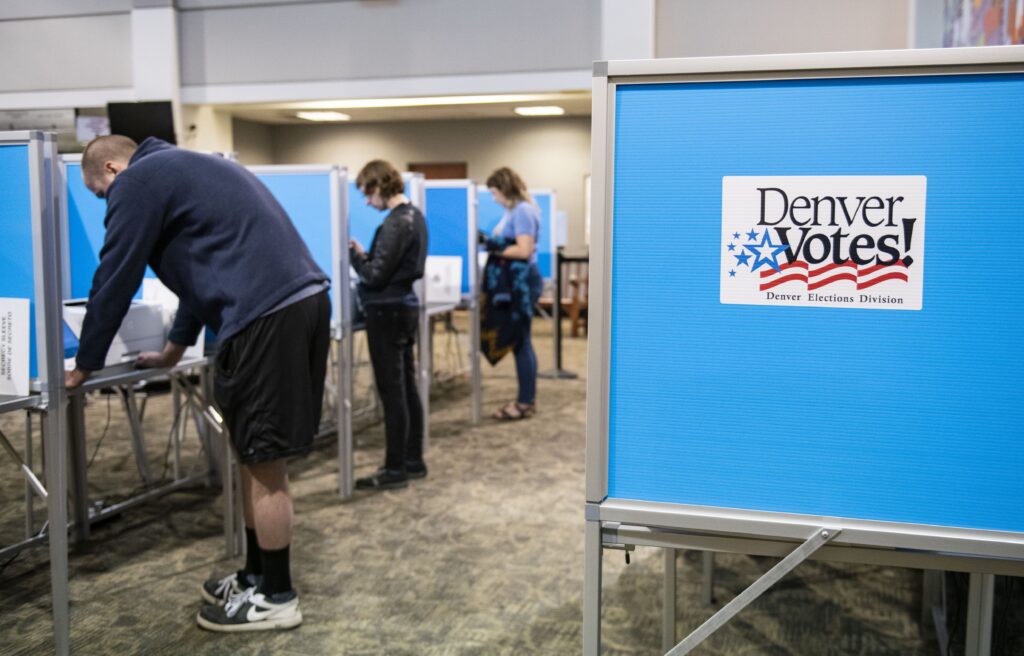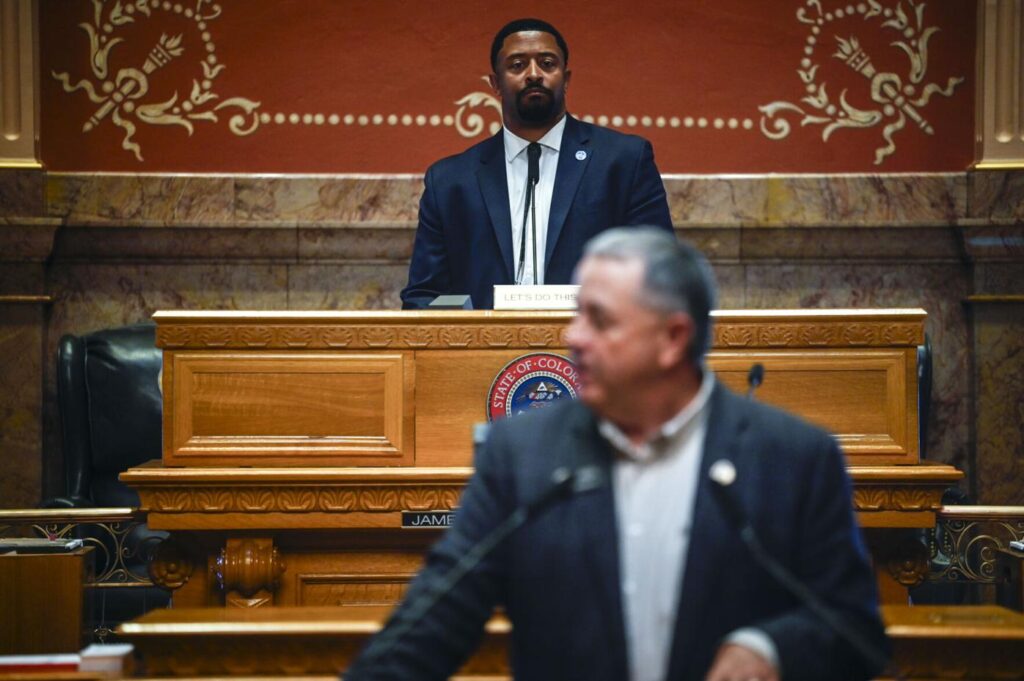Apocalyptic rhetoric nothing new in American politics | Vince Bzdek
“Human sacrifice! Dogs and cats living together! Mass hysteria!”
Those classic Bill Murray lines from “Ghostbusters” aptly capture the kind of end-of-the-world hyperbole flying around right now during the final runup to Election Day.

Vince Bzdek
Lauren Boebert shot her neighbors’ dogs (false). Heidi Ganahl claims that kids are “identifying as cats” rather than boys or girls.” (Schools deny this.) Paul Pelosi was hurt by a gay prostitute rather than an intruder with a hammer (false.) Our country is on an “unprecedented unlawful path to chaos,” the president tells us.
What is a truth-loving voter supposed to believe?
The problem, of course, is though legitimate news outlets don’t give these things much oxygen, the internet sure does.
And what’s worse, social media has let foreign disinformation-making machines into the country like Trojan Horses full of falsehoods looking to break out and bring down the country.
The heated language is probably a symptom of how much mistrust has infused election season in 2022, giving rise to fears of confrontation at the polls this Tuesday, and even violence.
A person begins to despair that we live in a Golden Age of Lies.
But take heart, pilgrims.
A recent book just out reminds us that America has always been thus, and somehow we have endured.
“Revolutionary,” a new biography of Sam Adams, who at one time was considered the true “Father of the American Revolution,” recounts in wildly entertaining detail the roots of American rumormongering, slanted news writing, character assassinations, over-the-top political theater, even viral meme-sharing.
Adams, cousin to founder John, saw no reason why “high-minded ideals should shy from underhanded tactics.” He employed a slew of such tactics in an effort to demonize the British in service to a cause that became a nation. His methods were so unruly and sometimes downright dishonest that his star has fallen from the top rung of founders like Washington and Hamilton. But we surely wouldn’t have had a revolution without him, and his rebellious brand of politics still colors the way we practice it today.
Let’s start with Fake News. Adams began what was probably the first news service, the Journal of Occurrences, whose stories were composed in Boston but circulated and reprinted widely among the colonies. Essentially the stories were fiction, but once they were shared over and over again they attained a patina of fact. “By the time the dubious tale of the worthy old man who discovered a soldier in bed with his favorite granddaughter had boomeranged back to Boston, it arrived as news, displacing memory,” writes the book’s author, Stacy Schiff.
And then Adams wrote in other publications, commenting on his fake stories under a bunch of fake names, such as Candidus, Populus, Valerius and Poplicola. Alexander Hamilton did the same thing in his day, penning vicious personal attacks on Thomas Jefferson using the secret identity of Phocion.
Cognitive researchers actually have a name for this now: the “illusory truth effect.” If you repeat a falsehood enough, more people will believe it.
Adam Gopnik points out in a wonderful review of the Adams book in the New Yorker that Adams originated American political theater as well. The making, burning and hanging of stuffed dolls know as effigies representing British royals and members of Parliament was all the rage in the 1760s, and Sam Adams was always near the scene of the crime.
When British troops occupying Boston were backed into a corner by a mob, and fired their guns, killing several people, Adams enlisted artist Henry Pelham and engraver Paul Revere to make an incendiary graphic image of a line of redcoats slaughtering helpless civilians. That picture was bootlegged around the colonies and gave rise to the incident’s permanent tabloid name: The Boston Massacre.
Adams invented the first political publicity stunt in American politics as well. Historians generally give him credit for organizing the Boston Tea Party that dumped a bunch of English tea into the harbor in a symbolic protest against higher taxes on tea. “What Sam Adams grasped was that these things (like the tea tax) could be imagined as symbolic revenge — the 18th-century equivalent of mask mandates, which infuriate people by their seemingly capricious insistence, quite apart from their actual burdens,” writes Gopnik. The tea tax itself wasn’t that onerous really, but the idea of it sure was — “underlining the arbitrary nature of colonial rule” by a faraway island.
Adams saw beer as a political tool central to the fomenting of revolution as well, or should I say fermenting? Adams recruited many of the earliest revolutionaries in beer halls, and was a “malster” himself — the guy who preps the ingredients that eventually ferment into beer (and revolution, in this case). Hence the celebration of him on a very popular beer label even though he never brewed a single beer himself.
So what are we to make of this deeply rooted American tolerance of political troublemaking?
Gopnik sums it up well. “Good things come in bad packages; bad things come wrapped in fine ones. Sam Adams was maddeningly opportunistic in this means — and astoundingly idealistic in his ends. But then most of what we inherit from the past, including the Founders, is the usual mixed bag that we get from people as divided as ourselves.”
Americans have a remarkable facility for sifting the good from the bad over time, and though history runs maddeningly in circles, we’ve been lucky so far in that our history has continued to spiral up to better places. We are a country that is driven by extraordinarily good ideas, despite how bad some of its people have been.
So given that America was born out of some of the same outrageous and extra-legal tactics we’re seeing now, I can’t help but believe our country and democracy will survive this moment and this election. Somehow, we’ve always been able to eventually excise the bad elements among us — like Nixon and McCarthyism and communism and polio — and move forward to greater good. The only problem would be not cutting out cancers that keep us from perfecting a more perfect union. We must prune regularly if we are to continue to grow.
We’re still in mid-prune now on the excesses of the Trump era, I would argue, but given our long and rowdy history and extraordinary ability to adapt, I have faith we’ll finish the job.














